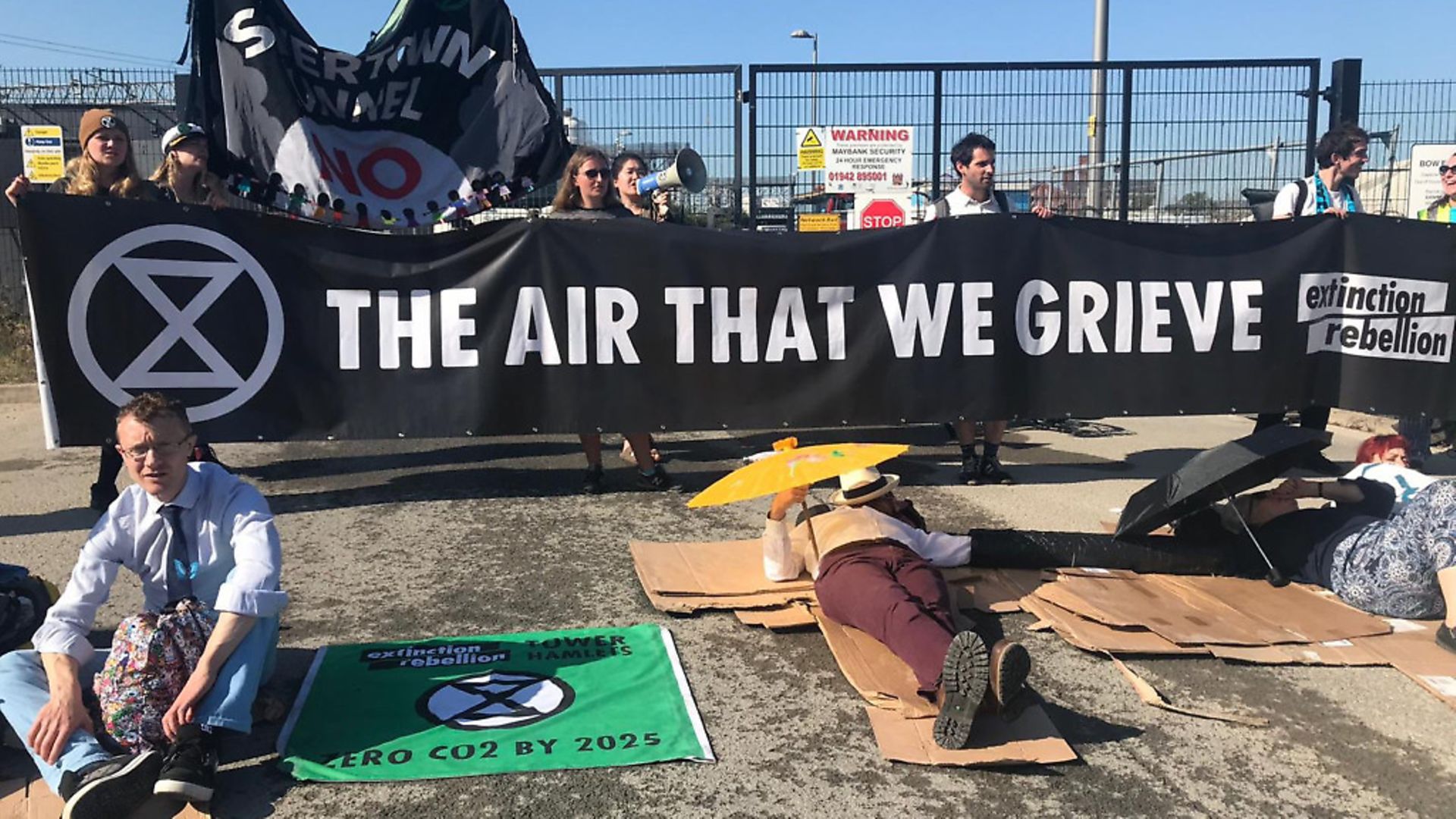
Climate change is a socialist and feminist issue and that’s why the Green New Deal has never been so important, says Green Party MEP Alexandra Phillips.
Over the past few months, we’ve seen the rise of a kind of ‘climate spring’ in the UK – a real awakening to the fact that we’re in the midst of a climate crisis.
Extinction Rebellion protests, acts of civil disobedience and scheduled school walkouts have forced the public to wake up to the realities of the situation, while experts have openly started to persuade people to choose beans over beef and reduce their plastic consumption.
But none of this goes far enough.
There are loads of ways to ‘go green’, which will all go some way to reducing your own carbon footprint.
To make a lasting impact, however, society needs to go much further – and it isn’t something that will work if it is simply down to individual consumption. If we want real change and a chance of a brighter future for our kids, governments need to lead the way. And we will make much smaller waves by acting as one tiny island; Europe as a bloc has to continue to commit to a pan-European effort.
The environment is a socialist issue. Climate change disproportionately affects lower income communities and people of colour. And that’s why my work in Brussels is focused around a Green New Deal.
That’s a set of goals created to tackle the climate crisis by putting social justice at the centre of everything. It will create secure, well-paid jobs as well as providing a huge amount of investment in renewable energies and energy efficiency measures.
In the USA, congresswoman Alexandria Ocasio-Cortez has been whipping up momentum around a US Green New Deal and that’s set to be one of the core issues of the 2020 presidential election.
The American model is based on the New Deal of the 1930s, which focussed on America’s recovery after the Great Depression: Our version is inspired by that too and it is very much planted in the here-and-now, and revolves around the current climate emergency.
The 3 Rs of Roosevelt’s plan – relief for the poor, recovery of the economy and reform of the financial system – are still relevant today, but we believe that reviving Europe’s economy and addressing the very real gender, economic and social inequalities are all inexorably linked to tackling the climate emergency.
We want to kick-start the economy in two ways: by ending austerity via a commitment to the biggest investment we have ever seen in renewable energies and energy efficiency measures, and tackling the climate crisis head-on.
As you can see, the two are intertwined.
You can’t commit to creating more jobs that will directly contribute towards tackling the climate crisis without also making a positive impact on the environment.
Simply put, our GND involves:
– Investing more in green agriculture, industry and infrastructure – creating millions of secure, sustainable jobs
– Financing that investment through European public investment banks so that ordinary people don’t have to shoulder the burden of that transition
– Distributing funds fairly, with decisions being made by communities and citizen assemblies rather than the head honchos who currently dictate how we live
– Ensuring that this ecological transition enshrines equal rights for migrants, newcomers and residents, regardless of gender, race, age, sexuality or abilities
– Readdressing Europe’s history and legacy of colonialism across the global south
Employment and job creation is absolutely fundamental to fighting climate change, which is why I sit on the employment committee in Brussels.
As a child of the 1980s, I’ve seen UK-based industries collapse with no safety net for skilled workers whose families have been working in the same areas for generations.
Entire communities have been destroyed as a result of Conservative governments brutally culling jobs and contracts.
A Green New Deal could undo some of that damage, injecting life into areas of the UK which feel abandoned and let down by their leaders. Investing in these jobs means setting up for the future – we need more innovation, more jobs, more money going into clean and safe energy and efficient building, not less.
By putting jobs at the forefront of these goals, we’re also going to be able to start seriously working on social inequality.
Brexit has come about largely because very many people across the country have not only be failed by successive governments but there is also a certain feeling of being voiceless and ignored.
Many can’t get onto the housing ladder, are struggling to put food on the table and take home less than they would if they didn’t work. In-work poverty has meant a reliance on food banks for large sections of society as fuel and food prices increase and people are left to decide whether to eat or heat their homes. It’s completely predictable therefore that communities have turned inwards, looking for easy scapegoats to blame for the situations that they have been put in.
But by putting people and their futures at the centre of the Green New Deal, we can turn society around – injecting newfound hope and optimism into people’s lives. And, crucially, we can act on the worst impacts of the climate crisis – before it really is too late.
Alexandra Phillips is Green Party MEP for South East England and has also been mayor of Brighton and Hove since May









